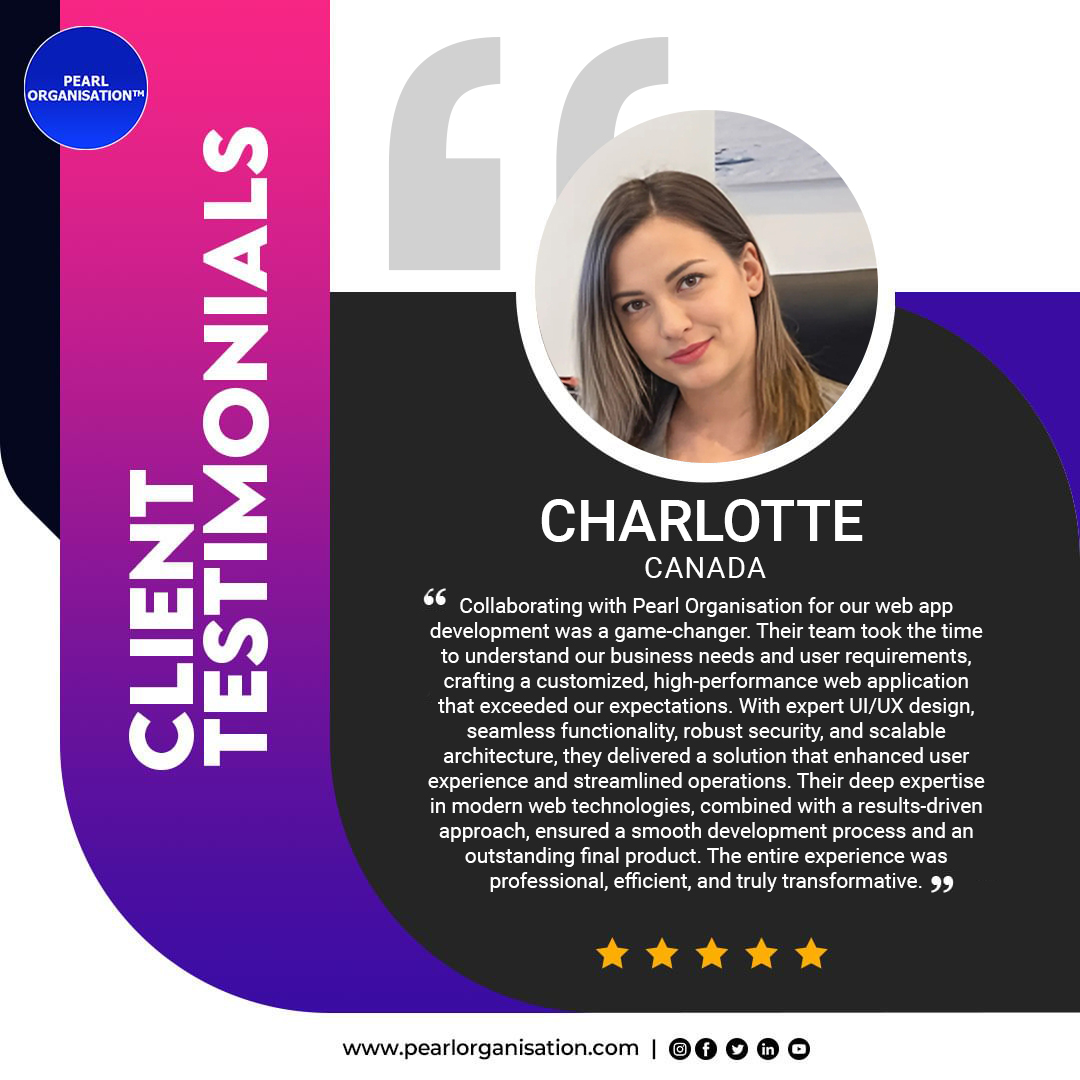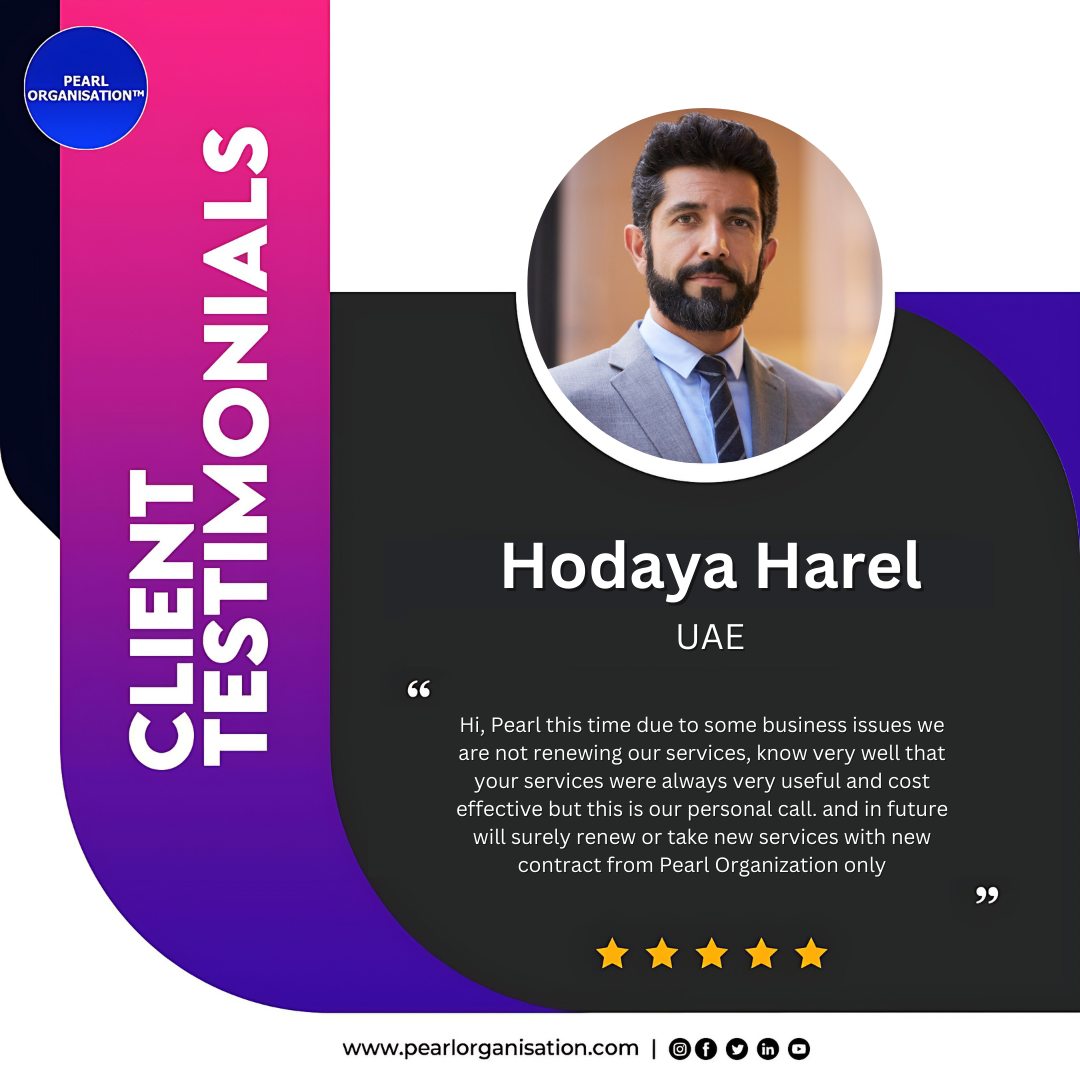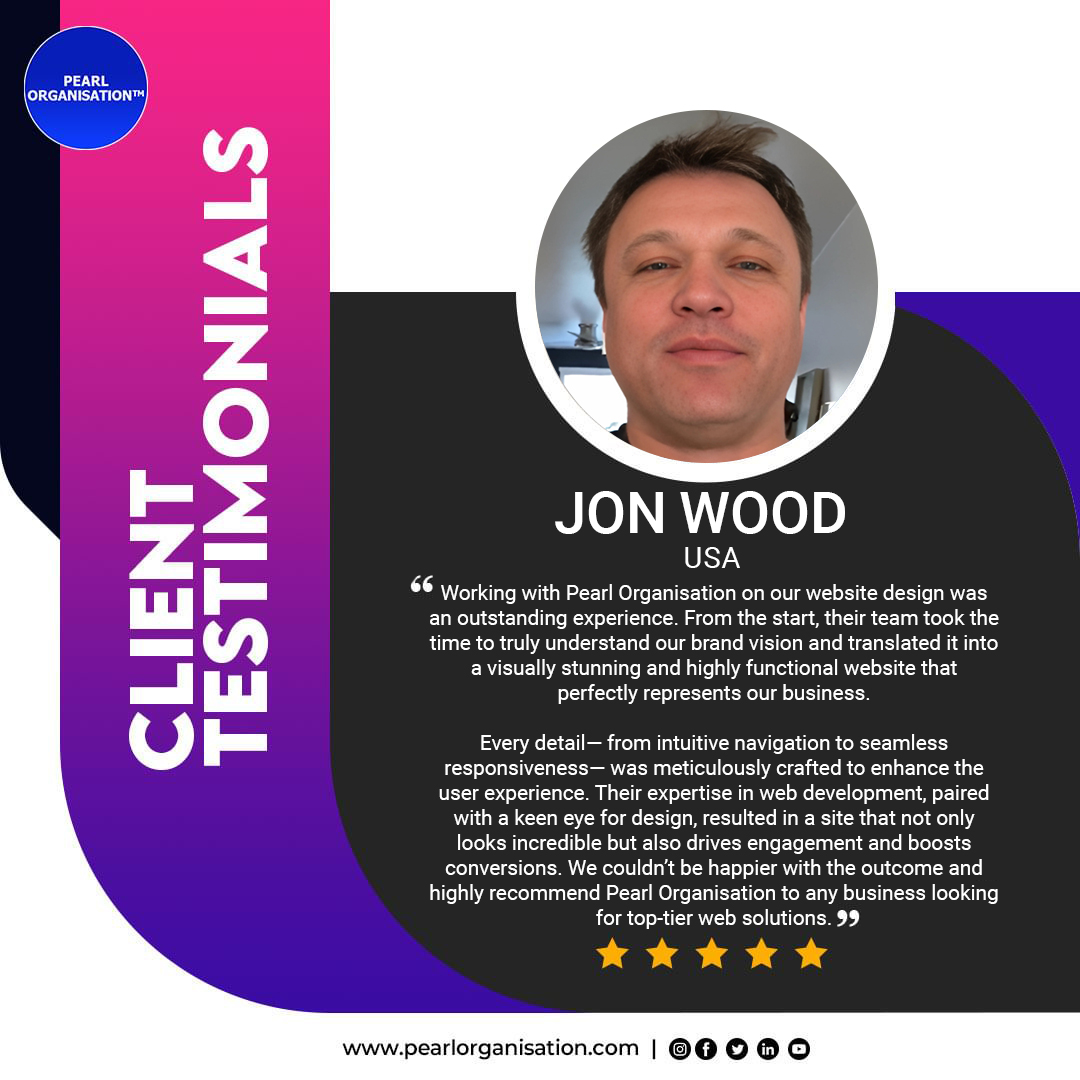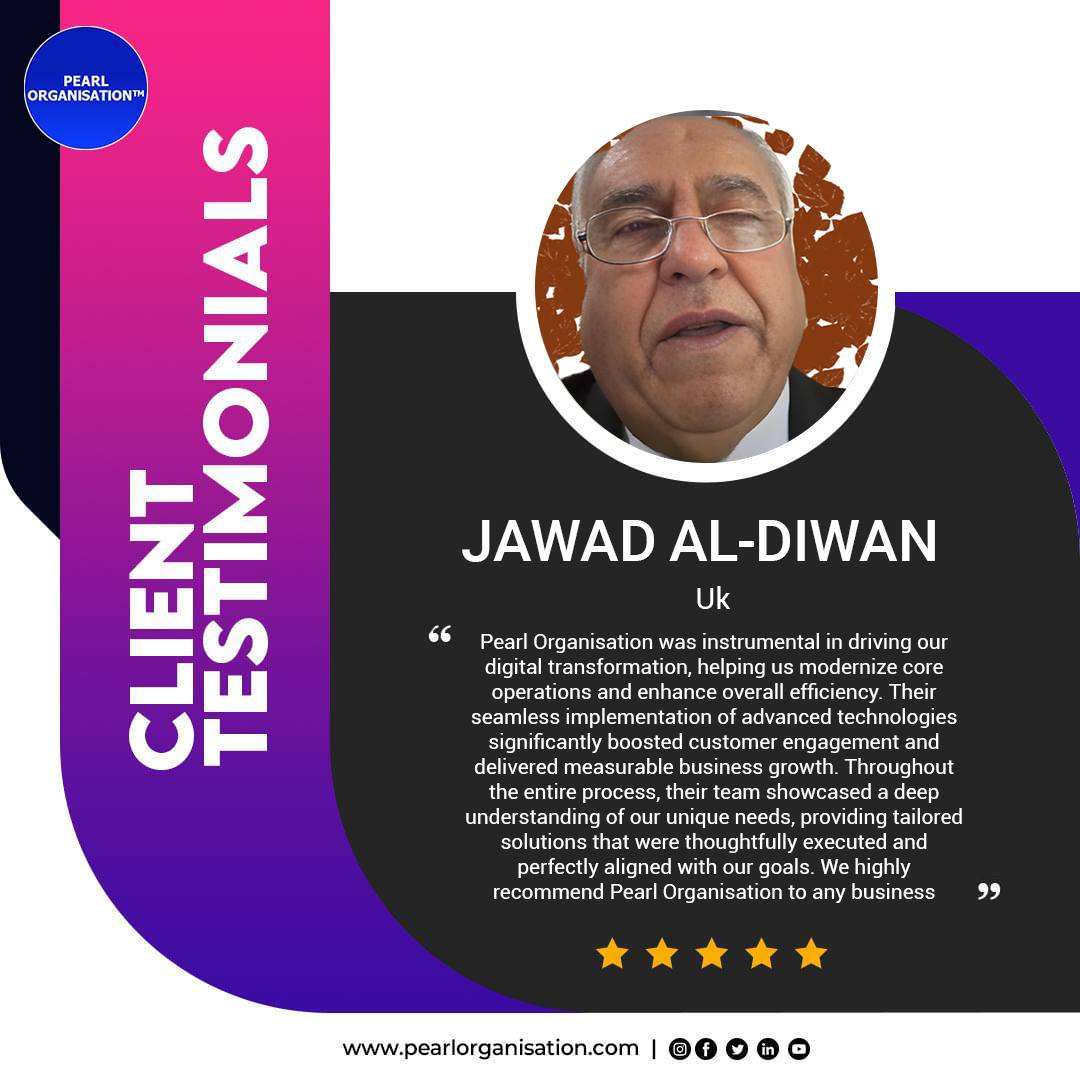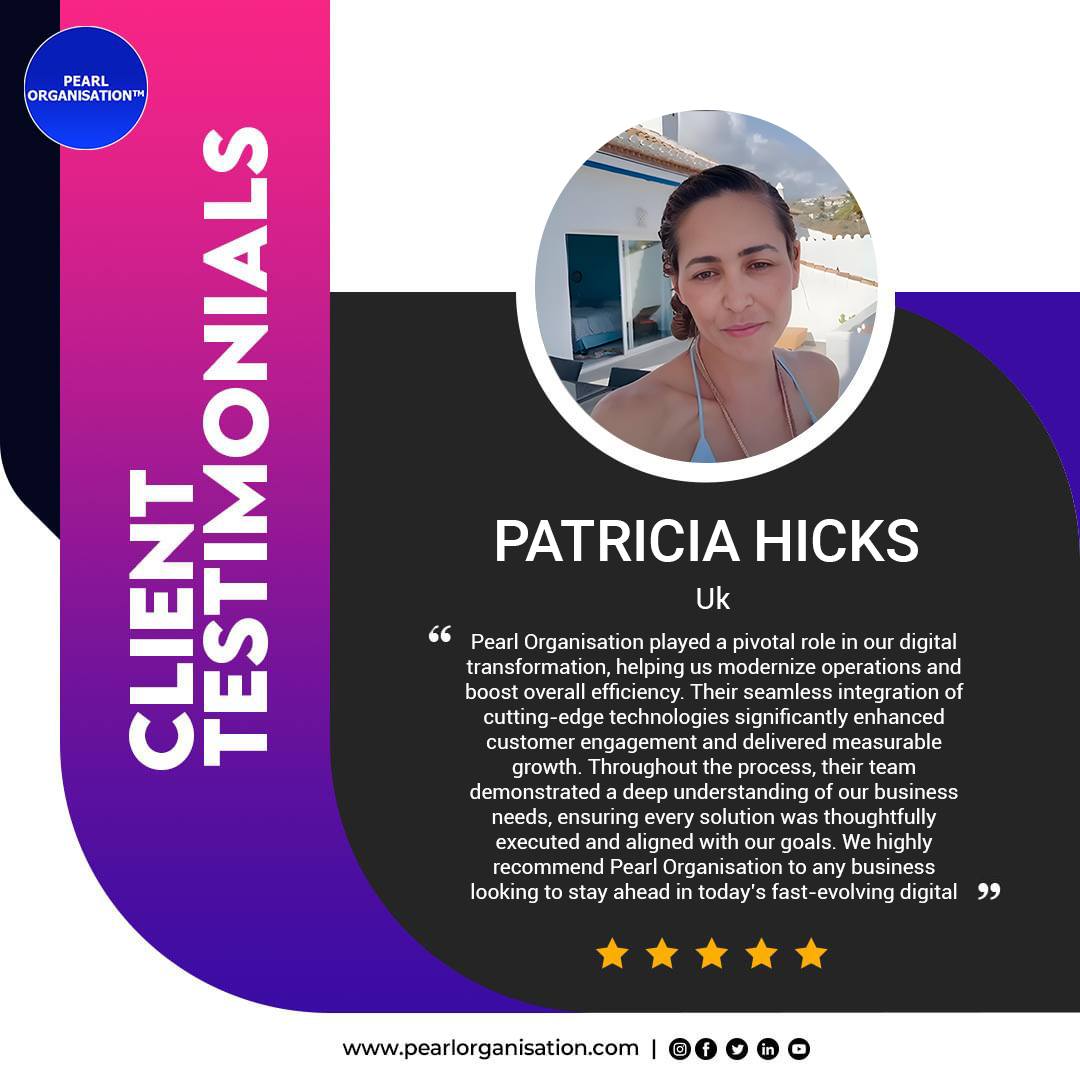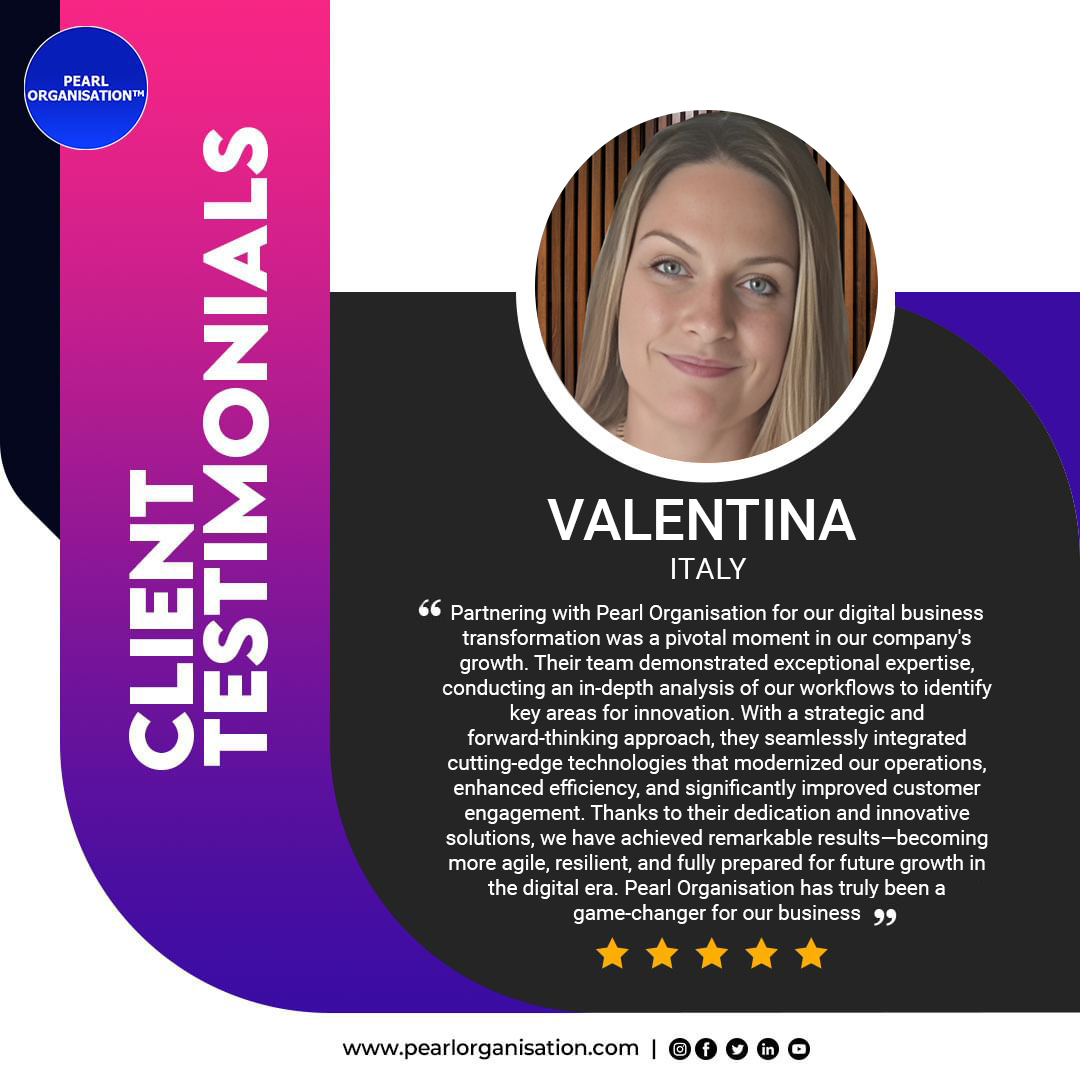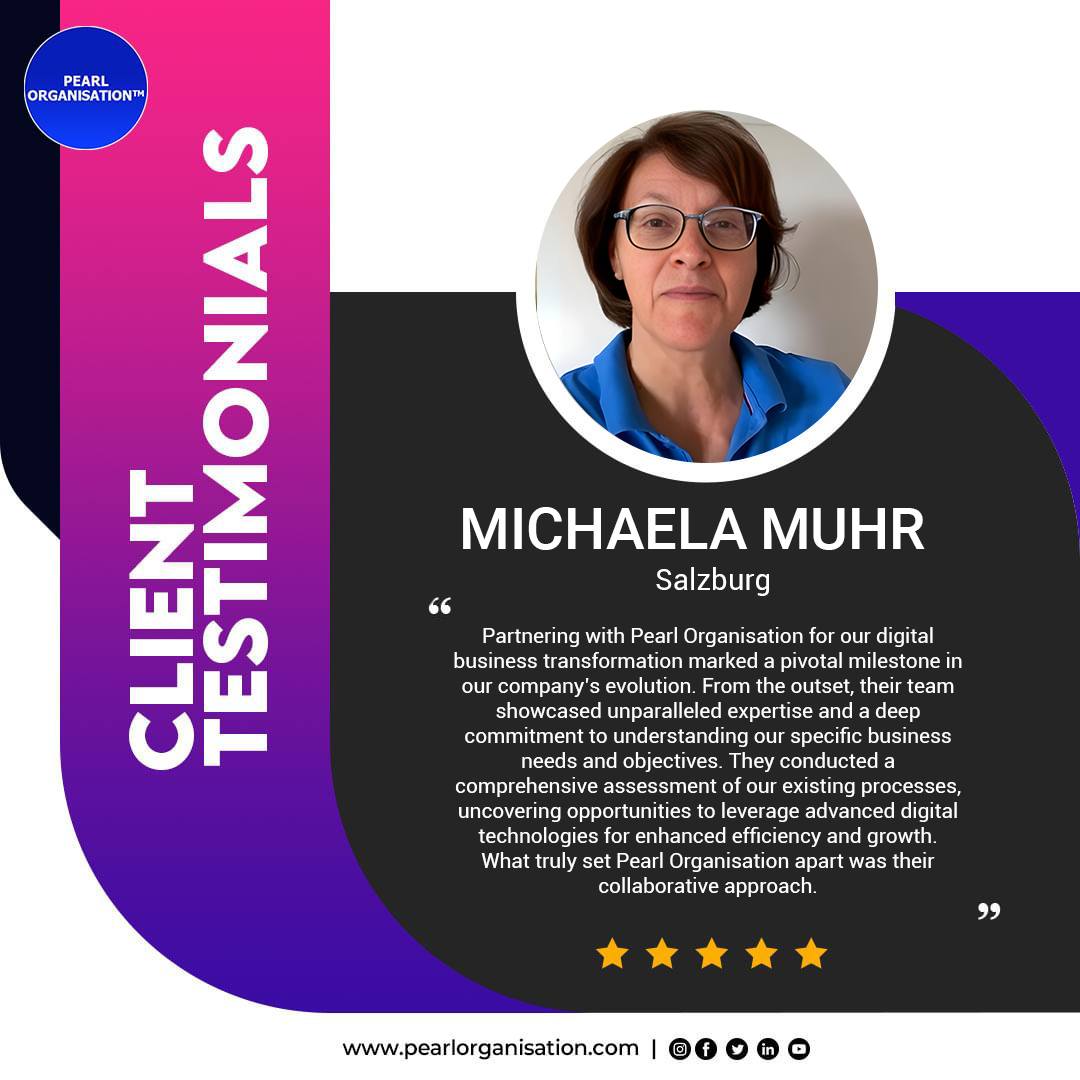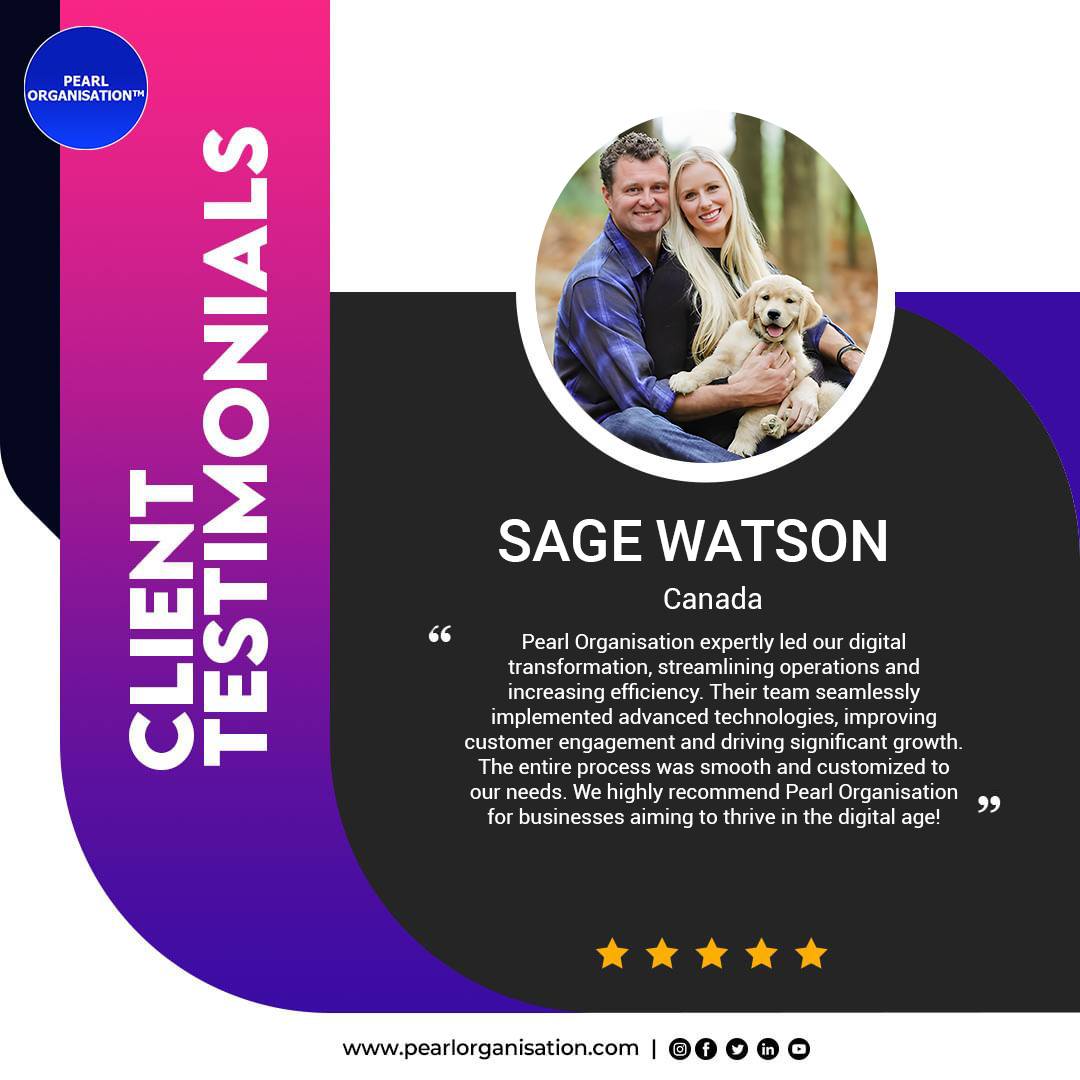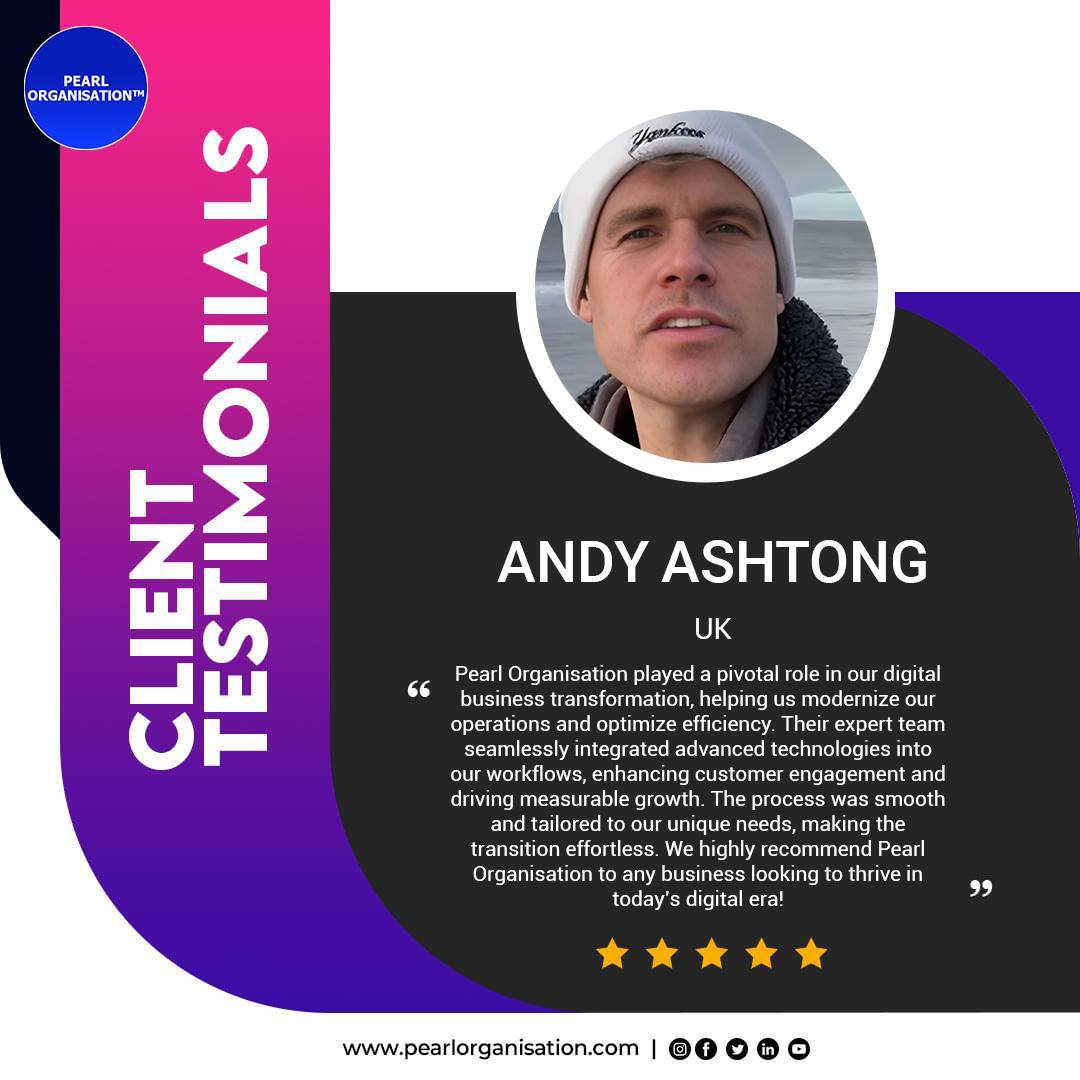Crafting the Future of Education: Comprehensive LMS Development Solutions by Pearl Organisation
- Sep 5, 2025
- 13 min read

In an era where digital transformation is reshaping every facet of our lives, the realm of education and professional training stands at the forefront of this revolution. Learning Management Systems (LMS) have emerged as indispensable tools, bridging the gap between traditional learning methods and the dynamic needs of modern learners. These platforms not only facilitate the delivery of educational content but also enhance engagement, track progress, and provide actionable insights to educators and organizations alike.
At Pearl Organisation, a premier global leader in digital product development, we excel in crafting bespoke LMS solutions that cater to diverse industries, from academia to corporate training and beyond. With a remarkable track record of serving over 150 countries, employing more than 230 agile professionals, completing upwards of 18,000 projects, and satisfying over 10,500 clients, Pearl Organisation is synonymous with innovation, reliability, and excellence in LMS development.
This in-depth article delves into the intricacies of LMS development, highlighting how Pearl Organisation's expertise in digital product development services propels organizations toward educational success. For more on our comprehensive offerings, visit Pearl Organisation Digital Product Development Services.
The Evolving Landscape of Learning Management Systems
The digital education sector is experiencing unprecedented growth, with projections indicating that the global e-learning market will exceed $375 billion by 2026 and potentially reach $1 trillion by 2030. This surge is fueled by factors such as the widespread adoption of remote work, the need for continuous professional development, and the integration of advanced technologies like artificial intelligence (AI) and virtual reality (VR). LMS platforms are central to this evolution, serving as centralized hubs for content creation, distribution, assessment, and analytics.
Key Benefits of Implementing an LMS
Enhanced Scalability and Flexibility: Traditional classroom settings are limited by physical space and time constraints. An LMS allows organizations to scale learning programs effortlessly, accommodating learners from a handful to hundreds of thousands across global time zones.
Personalized Learning Pathways: Leveraging data analytics and AI, modern LMS platforms can adapt content in real-time based on individual learner performance, preferences, and goals, fostering a more effective and engaging educational experience.
Cost-Effective Training Solutions: By minimizing the need for physical materials, travel, and instructors' time, LMS implementations can reduce training expenses by up to 50-70%, according to industry reports.
Comprehensive Analytics and Reporting: Real-time dashboards provide insights into learner engagement, completion rates, knowledge retention, and skill gaps, enabling data-driven decision-making.
Improved Compliance and Certification: For regulated industries like healthcare and finance, LMS systems ensure that training meets legal standards, with automated tracking of certifications and renewals.
Global Reach and Inclusivity: With multilingual support and accessibility features, LMS platforms break down geographical and cultural barriers, making education accessible to diverse populations.
At Pearl Organisation, we recognize that an LMS is more than software—it's a strategic enabler that aligns with business objectives, enhances workforce capabilities, and drives long-term growth.
Pearl Organisation's Holistic Approach to LMS Development
Drawing from our extensive experience in digital product development, Pearl Organisation adopts a meticulous, phased approach to LMS creation. Our methodology is agile, iterative, and deeply collaborative, ensuring that every project is tailored to the client's unique requirements. With our team of over 230 experts—comprising software engineers, UX/UI designers, data scientists, and domain specialists—we deliver solutions that are not only technologically advanced but also user-friendly and sustainable.
Phase 1: Discovery and Strategic Planning
The foundation of any successful LMS lies in thorough planning. Our process begins with an immersive discovery phase where we:
Conduct Stakeholder Interviews: Engage with key personnel to understand organizational goals, pain points, and desired outcomes.
Perform Market and Competitor Analysis: Evaluate current trends, benchmark against industry leaders, and identify opportunities for differentiation.
Assess Technical Feasibility: Review existing infrastructure, integration needs, and scalability requirements to outline a viable technical roadmap.
Define Key Performance Indicators (KPIs): Establish metrics such as user adoption rates, engagement levels, and ROI to measure success post-launch.
This phase culminates in a detailed project blueprint, including timelines, budgets, and risk assessments, ensuring alignment from the outset.
Phase 2: User-Centric Design and Prototyping
Design is the heart of user adoption. Our design-led engineering philosophy emphasizes creating interfaces that are intuitive and aesthetically pleasing:
Wireframing and Prototyping: Develop interactive prototypes to visualize the user journey, incorporating feedback loops for refinements.
User Experience Mapping: Chart out personas for learners, instructors, and administrators, ensuring seamless interactions at every touchpoint.
Accessibility and Inclusivity Standards: Comply with WCAG 2.1 guidelines, including screen reader compatibility, color contrast ratios, and keyboard navigation.
Responsive and Cross-Device Optimization: Ensure the LMS performs flawlessly on desktops, laptops, tablets, and smartphones, with progressive web app (PWA) capabilities for offline access.
Incorporating Engagement Elements: Integrate gamification features like badges, leaderboards, and progress trackers to boost motivation and retention.
Our designers collaborate with developers early on to bridge the gap between aesthetics and functionality, resulting in prototypes that are both beautiful and practical.
Phase 3: Core Development and Integration
This is where our technical prowess shines. Utilizing agile sprints, we build the LMS with a focus on robustness and extensibility:
Modular Architecture Design: Employ microservices to create independent components that can be updated without affecting the entire system.
API-Driven Integrations: Seamlessly connect with external systems such as HRIS (e.g., Workday), CRM (e.g., Salesforce), video conferencing tools (e.g., Zoom), and payment processors.
Cloud Infrastructure Setup: Leverage platforms like AWS, Microsoft Azure, or Google Cloud for elastic scaling, high availability, and disaster recovery.
Security and Compliance Implementation: Incorporate encryption, multi-factor authentication (MFA), role-based access control (RBAC), and adherence to standards like GDPR, CCPA, and ISO 27001.
Advanced Feature Development: Build in AI for adaptive learning, natural language processing for chatbots, and machine learning for predictive analytics.
Throughout development, we conduct regular code reviews, unit testing, and integration testing to maintain high standards of quality.
Phase 4: Quality Assurance and Deployment
Quality is non-negotiable at Pearl Organisation. Our QA process includes:
Automated and Manual Testing: Cover functional, performance, security, and usability testing using tools like Selenium and JMeter.
User Acceptance Testing (UAT): Involve clients in real-world simulations to validate the platform.
CI/CD Pipelines: Automate deployments for faster, error-free releases using Jenkins or GitHub Actions.
Infrastructure Optimization: Implement IaC with Terraform for reproducible environments.
Deployment is staged—starting with a beta version for pilot users—ensuring a smooth transition to production.
Phase 5: Ongoing Support and Evolution
Post-launch, our commitment continues:
Monitoring and Analytics: Use tools like Google Analytics and New Relic to track usage and performance.
Iterative Enhancements: Based on user feedback and A/B testing, roll out updates to refine features.
Maintenance Services: Provide 24/7 support, bug fixes, and security patches.
Scalability Upgrades: As your user base grows, we optimize for increased loads without downtime.
This lifecycle approach ensures your LMS remains relevant and effective over time.
Why Pearl Organisation Excels in LMS Development
Our global footprint and proven expertise set us apart:
Diverse Industry Experience: From K-12 education to Fortune 500 corporations, we've tailored LMS for varied sectors.
Innovation-Driven Culture: We invest in R&D, exploring VR/AR integrations and blockchain for secure certifications.
Client Testimonials and Success Metrics: With a 96% satisfaction rate, our clients report improved learning outcomes and operational efficiencies.
Agile Team Dynamics: Our 230+ professionals work in cross-functional teams, fostering creativity and speed.
Ethical and Sustainable Practices: We prioritize data privacy and eco-friendly cloud solutions.
Advanced Features in Pearl Organisation's LMS Platforms
Our LMS solutions boast a rich feature set:
Content Authoring Tools: Drag-and-drop editors for multimedia courses.
Assessment Engines: Support for quizzes, simulations, and peer reviews.
Social Learning Features: Forums, wikis, and collaborative workspaces.
Mobile-First Design: Native apps for iOS and Android with push notifications.
AI-Enhanced Capabilities: Automated grading, sentiment analysis, and recommendation engines.
E-Commerce Integration: For monetizing courses with secure payments.
Custom Branding: White-label options to match your corporate identity.
Case Studies: Transformative LMS Implementations
Corporate Training Overhaul: For a multinational retailer, we developed an LMS that trained 15,000 employees, reducing onboarding time by 35% and increasing knowledge retention by 28%.
Academic Excellence Platform: A university LMS we built supported 25,000 students with hybrid models, boosting graduation rates by 18% through personalized tutoring.
E-Learning Marketplace: For a startup, our scalable platform handled 150,000 users, integrating VR modules and achieving 99.9% uptime.
These examples illustrate our ability to deliver tangible results.
Emerging Trends and Pearl Organisation's Vision
Looking ahead, we anticipate trends like metaverse-based learning, blockchain credentials, and AI tutors. Pearl Organisation is committed to pioneering these, ensuring our clients stay ahead.
Partner with Pearl Organisation for Your LMS Needs
Embark on your LMS journey with us. Discover why over 10,500 clients trust Pearl Organisation. Schedule a free consultation or view testimonials today.
Together, let's redefine education.
Frequently Asked Questions (FAQs) About LMS Development with Pearl Organisation
At Pearl Organisation, we understand that embarking on a Learning Management System (LMS) development project can raise many questions. With our extensive experience in digital product development, serving over 150 countries, completing 18,000+ projects, and satisfying 10,500+ clients, we’ve compiled this comprehensive FAQ to address common queries about our LMS development services. These answers provide detailed insights into our processes, capabilities, and how we can help you achieve your learning objectives. For more information on our offerings, visit Pearl Organisation Digital Product Development Services.
1. What is a Learning Management System (LMS), and why is it important for my organization?
Answer:
A Learning Management System (LMS) is a software platform designed to create, deliver, manage, and track educational courses or training programs. It serves as a centralized hub for e-learning, enabling organizations to provide scalable, accessible, and engaging learning experiences. An LMS is critical for:
Scalability: Deliver training to thousands of users globally without physical constraints.
Personalization: Use AI-driven analytics to tailor content to individual learner needs.
Cost Savings: Reduce expenses associated with in-person training, such as travel and materials, by up to 50-70%.
Compliance: Ensure adherence to industry regulations (e.g., GDPR, HIPAA) with automated tracking.
Analytics: Gain insights into learner progress, engagement, and performance through real-time dashboards.
At Pearl Organisation, we design LMS platforms to align with your specific goals, whether you’re an educational institution, corporation, or e-learning provider, ensuring measurable outcomes like improved employee performance or student retention.
2. Why should I choose Pearl Organisation for LMS development?
Answer:
Pearl Organisation stands out as a global leader in digital product development due to our:
Proven Track Record: With 18,000+ projects completed and a 96% client satisfaction rate, we deliver reliable solutions.
Global Expertise: Serving 150+ countries, we understand diverse market needs and cultural nuances.
Agile Workforce: Our team of 230+ professionals, including developers, designers, and strategists, ensures rapid, high-quality delivery.
Cutting-Edge Technology: We integrate AI, cloud computing, and emerging technologies like VR to create future-ready LMS platforms.
Client-Centric Approach: Our collaborative process involves regular updates, ensuring your vision drives the project.
End-to-End Services: From strategy and design to development and post-launch support, we provide a seamless experience.
Our testimonials from 10,500+ happy clients reflect our commitment to excellence and innovation in LMS development.
3. What types of organizations can benefit from your LMS solutions?
Answer:
Our LMS solutions are versatile and tailored to a wide range of sectors, including:
Educational Institutions: K-12 schools, universities, and online academies use our LMS for hybrid learning, course management, and student analytics.
Corporations: Businesses leverage our LMS for employee onboarding, compliance training, and skill development.
Healthcare: Hospitals and clinics use our platforms for mandatory certifications and continuous professional development.
Retail and E-Commerce: Global chains train staff on customer service, product knowledge, and operational protocols.
Startups and EdTech Providers: We build scalable platforms for e-learning marketplaces with monetization features.
Non-Profits and Government: Organizations use our LMS for community education and workforce training.
Our customizable solutions ensure that whether you’re a small startup or a multinational enterprise, your LMS aligns with your unique needs.
4. What is the typical timeline for developing a custom LMS with Pearl Organisation?
Answer:
The timeline for LMS development depends on the project’s complexity, features, and client requirements. A typical timeline includes:
Discovery and Planning (2-4 weeks): Stakeholder interviews, market analysis, and technical feasibility studies.
Design and Prototyping (3-6 weeks): Creating wireframes, UI/UX designs, and interactive prototypes.
Development (8-16 weeks): Coding core functionalities, integrations, and security features using agile sprints.
Testing and QA (2-4 weeks): Conducting automated and manual tests, including user acceptance testing.
Deployment and Training (1-2 weeks): Launching the platform and training administrators.
Post-Launch Support: Ongoing maintenance and updates as needed.
For a basic LMS, the process may take 4-6 months, while complex platforms with AI, VR, or extensive integrations may require 6-9 months. Our agile methodology ensures faster delivery without compromising quality, and we provide a detailed timeline during the discovery phase.
5. What features can I expect in a Pearl Organisation LMS?
Answer:
Our LMS platforms are feature-rich and customizable, including:
Course Authoring Tools: Drag-and-drop interfaces for creating multimedia content (videos, quizzes, PDFs).
Gamification: Badges, leaderboards, and progress trackers to enhance learner engagement.
AI-Powered Personalization: Adaptive learning paths based on learner behavior and performance.
Mobile Accessibility: Native iOS/Android apps and responsive web designs for on-the-go learning.
Integration Capabilities: Seamless connections with tools like Zoom, Slack, Salesforce, and payment gateways.
Analytics and Reporting: Real-time dashboards for tracking completion rates, engagement, and skill gaps.
Multi-Language Support: Localized interfaces for global audiences.
Security Features: Encryption, MFA, and compliance with GDPR, HIPAA, and ISO 27001.
E-Commerce Tools: Monetization options for course sales, subscriptions, and certifications.
We work closely with you to prioritize features based on your budget and goals.
6. How does Pearl Organisation ensure the security of LMS platforms?
Answer:
Security is a top priority in our LMS development process. We implement:
Data Encryption: AES-256 for data at rest and TLS 1.3 for data in transit.
Role-Based Access Control (RBAC): Restrict access based on user roles (e.g., admin, instructor, learner).
Multi-Factor Authentication (MFA): Add layers of user verification to prevent unauthorized access.
Regular Security Audits: Conduct penetration testing and vulnerability assessments.
Compliance Standards: Adhere to GDPR, CCPA, HIPAA, and other regulations as required.
Secure Cloud Hosting: Use trusted providers like AWS and Azure with built-in disaster recovery.
Our security protocols protect sensitive learner data and ensure your LMS meets industry standards.
7. Can your LMS integrate with our existing systems?
Answer:
Yes, our LMS solutions are designed with an API-first approach, enabling seamless integration with:
HR Systems: Workday, BambooHR, or SAP SuccessFactors for employee data synchronization.
CRM Platforms: Salesforce, HubSpot, or Zoho for managing learner relationships.
Collaboration Tools: Zoom, Microsoft Teams, or Slack for virtual classrooms and communication.
Payment Gateways: Stripe, PayPal, or Razorpay for course monetization.
Single Sign-On (SSO): Support for OAuth, SAML, or LDAP for streamlined user authentication.
Learning Tools Interoperability (LTI): Integration with third-party educational tools.
During the discovery phase, we analyze your existing systems to ensure compatibility and a smooth integration process.
8. How does Pearl Organisation ensure accessibility in LMS platforms?
Answer:
We prioritize inclusivity by adhering to WCAG 2.1 guidelines, ensuring our LMS platforms are accessible to all users, including those with disabilities. Key accessibility features include:
Screen Reader Compatibility: Support for tools like JAWS and NVDA.
High-Contrast Modes: Improved visibility for visually impaired users.
Keyboard Navigation: Full functionality without a mouse.
Alt Text for Media: Descriptive text for images and videos.
Closed Captioning: Support for video content to aid hearing-impaired users.
Multilingual Support: Interfaces in multiple languages for global accessibility.
We conduct accessibility audits during testing to ensure compliance and usability.
9. What kind of post-launch support does Pearl Organisation provide?
Answer:
Our commitment extends beyond deployment with comprehensive post-launch services:
24/7 Technical Support: Dedicated support team for troubleshooting and issue resolution.
Regular Updates: New features, bug fixes, and security patches.
Analytics and Optimization: Monitor usage data and suggest improvements based on A/B testing and user feedback.
Scalability Enhancements: Adjust infrastructure to handle growing user bases.
Training and Documentation: Provide user manuals and training sessions for administrators and instructors.
Our proactive support ensures your LMS remains reliable, secure, and aligned with evolving needs.
10. How much does it cost to develop an LMS with Pearl Organisation?
Answer:
The cost of LMS development varies based on factors like:
Feature Complexity: Basic platforms with standard features cost less than those with AI, VR, or custom integrations.
Scale: Solutions for small organizations are less expensive than enterprise-grade platforms.
Customization: Highly tailored designs and functionalities increase costs.
Integrations: Connecting with multiple third-party systems may require additional development.
As a ballpark, a basic LMS may range from $20,000-$50,000, while advanced platforms with extensive features can exceed $100,000. We provide detailed cost estimates during the discovery phase, tailored to your budget and requirements. For precise pricing, book a free consultation at Pearl Organisation.
11. Can you develop mobile apps for the LMS?
Answer:
Yes, we develop native mobile apps for iOS and Android, as well as progressive web apps (PWAs) for cross-platform compatibility. Our mobile solutions include:
Responsive Design: Seamless performance across devices.
Offline Access: Downloadable content for learning without internet connectivity.
Push Notifications: Reminders for deadlines, course updates, or achievements.
Native Features: Leverage device capabilities like cameras for assignments or GPS for location-based learning.
Our mobile apps enhance accessibility and engagement, catering to learners on the go.
12. What technologies do you use for LMS development?
Answer:
We leverage a robust tech stack to ensure scalability, performance, and innovation:
Frontend: React.js, Vue.js, or Angular for dynamic, responsive interfaces.
Backend: Node.js, Python (Django/Flask), or Java for reliable server-side logic.
Databases: MongoDB, PostgreSQL, or MySQL for efficient data management.
Cloud Platforms: AWS, Azure, or Google Cloud for hosting and scalability.
AI/ML: TensorFlow or PyTorch for personalized learning and analytics.
DevOps Tools: Docker, Kubernetes, Jenkins for CI/CD and deployment.
Security: OAuth, JWT, and encryption libraries for robust protection.
We select technologies based on your project’s specific needs and long-term goals.
13. How do you handle data migration from an existing LMS?
Answer:
Migrating data from an existing LMS is a critical process that we handle with care:
Data Assessment: Analyze the current system’s data structure, formats, and volume.
Mapping and Transformation: Map old data fields to the new LMS and transform formats as needed.
Secure Transfer: Use encrypted channels to migrate data, ensuring no loss or breaches.
Validation and Testing: Verify data integrity post-migration through automated and manual checks.
User Training: Guide your team on accessing and managing migrated data.
We’ve successfully migrated data for clients with legacy systems, ensuring continuity and minimal disruption.
14. Can you help monetize our LMS platform?
Answer:
Absolutely. We build e-commerce functionalities to monetize your LMS, including:
Subscription Models: Recurring payments for course access.
Pay-Per-Course: One-time purchases for individual courses.
Certification Fees: Charge for issuing digital certificates.
Marketplace Integration: Allow instructors to sell courses, with revenue-sharing options.
Payment Gateway Support: Integrate with Stripe, PayPal, or local gateways for secure transactions.
Analytics for Monetization: Track revenue, user acquisition, and churn rates to optimize pricing strategies.
Our solutions have helped EdTech startups generate significant revenue through scalable monetization models.
15. How do you incorporate emerging technologies like AI and VR into LMS development?
Answer:
We stay ahead of the curve by integrating cutting-edge technologies:
Artificial Intelligence (AI): Powers adaptive learning, automated grading, chatbots for learner support, and predictive analytics for dropout prevention.
Virtual Reality (VR): Creates immersive simulations for fields like healthcare or engineering, enhancing hands-on learning.
Augmented Reality (AR): Overlays interactive content for engaging experiences, such as virtual labs.
Blockchain: Ensures secure, verifiable digital credentials and certifications.
These technologies enhance learner engagement and prepare your LMS for future trends.






























